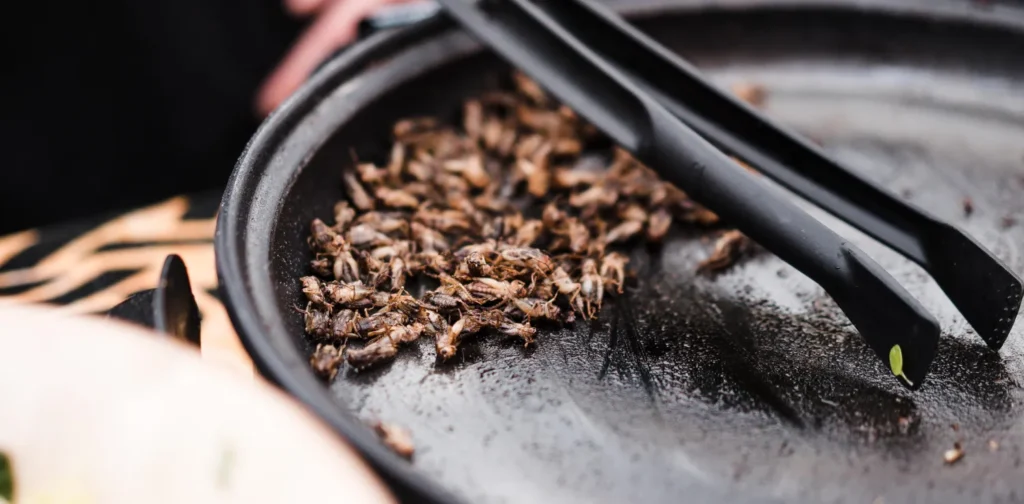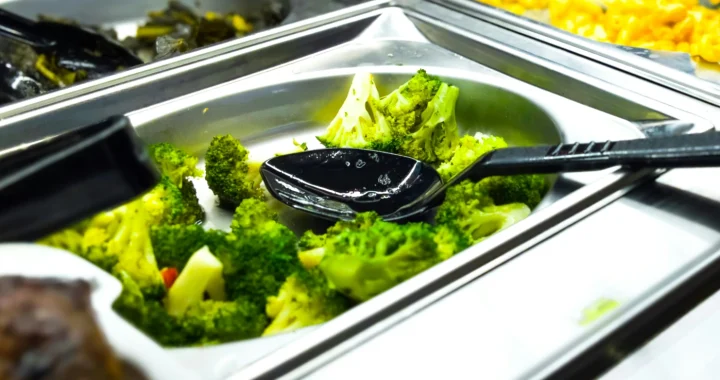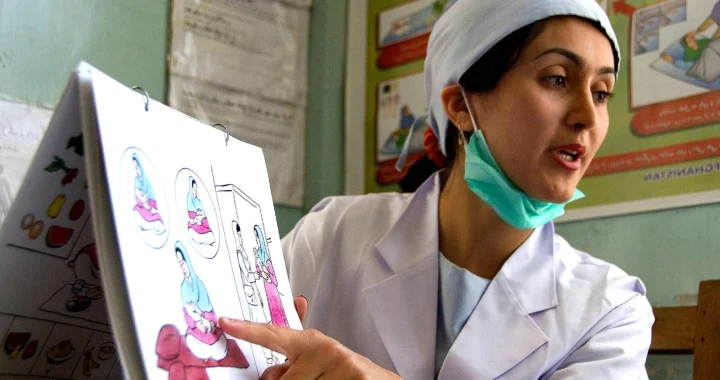Singapore Adds 16 Insect Species to the Menu

Photo by Viktor Hanacek
In the movie Snowpiercer, there is a scene where the protagonist and his group find out that the protein bars they have been eating are made of cockroaches. This scene means to invoke disgust and indignation, but do you know that there are at least 2,205 insect species worldwide humans consume as food? As food demand rises and natural resources dwindle, research has been touting insects as a sustainable source of protein in our diets. In Singapore, 16 insect species are now approved for human consumption.
Insect as Sustainable Food
In many regions of the world, people eat insects. Among the most commonly consumed are beetles, caterpillars, bees, and ants. Insect consumption, called entomophagy, is heavily influenced by cultural and religious practices as well as geophysical conditions.
For instance, tropical regions consume more insects because they have larger insects, higher insect species diversity, and better availability year-round than regions with cold and temperate climates. People in the tropics also live more in and with nature compared to those in colder zones.
Furthermore, western cultures largely view eating insects as primitive, barbaric, and disgusting. This attitude results in the reluctance to study and fund research to properly look into insects as a high quality, sustainable food source amidst global warming, biodiversity loss, land scarcity, and food insecurity.
“Insect protein is very similar to animal protein in that it has all the amino acids, lots of antioxidants, lots of micronutrients, and is a better source of nutrition than a lot of plant-based protein,” says Nick Rousseau, founder of the UK Edible Insect Association. “But insects can also be fed on waste, they have a much smaller environmental footprint, so they don’t use as nearly as much water or land, and they don’t emit methane in the way lots of livestock does.”
In estimation, producing insect protein emits 1,800 times less greenhouse gases than beef and 700 times less than pork.
Singapore’s 16 Edible Insect Species
The SFA (Singapore Food Agency) began public consultations on insect consumption in 2022. In July 2024, Singapore approved 16 insect species for human consumption. The guideline details the specific life stages permitted for each species. Grasshoppers, crickets, locusts, bees, silkworms, and mealworms are some of the approved insect species.
The government will also allow the import of live insects as well as products that contain insects as ingredients, such as pasta, crackers, and snack bars. The SFA has provided strict regulations and requirements to ensure food safety and sustainability.
Some industry players in the food and beverage sector have been gearing to take this new market in stride. For instance, the restaurant House of Seafood is ready to serve 30 insect dishes from its menu. Altimate Nutrition, an insect food product company, mainly offers cricket-based protein bars.
Policy and Education
Prior to the approval, Altimate Nutrition conducted workshops and educational outreach at almost a hundred schools. Surveys afterward found that around 80% of students would be willing to try insects. All in all, anything new can be scary, including making insects a part of our regular diets. Beyond the first step of official approval, mainstreaming insects as a safe and sustainable alternative of protein source requires extensive education and marketing efforts from governments and the private sector. So far, it remains to be seen if insects will fulfil their potential in contributing to greenhouse gas reduction, sustainable food system, and food security for all.

Co-create positive impact for people and the planet.
Amidst today’s increasingly complex global challenges, equipping yourself, team, and communities with interdisciplinary and cross-sectoral insights on sustainability-related issues and sustainable development is no longer optional — it is a strategic necessity to stay ahead and stay relevant.

Nazalea Kusuma
Naz is the Manager of International Digital Publications at Green Network Asia. She is an experienced and passionate writer, editor, proofreader, translator, and creative designer with over a decade of portfolio. Her history of living in multiple areas across Southeast Asia and studying Urban and Regional Planning exposed her to diverse peoples and cultures, enriching her perspectives and sharpening her intersectionality mindset in her storytelling and advocacy on sustainability-related issues and sustainable development.


 Assessing Indonesia’s Step into Global Carbon Markets
Assessing Indonesia’s Step into Global Carbon Markets  Prioritizing Finance for Nature for Healthy and Resilient Ecosystems
Prioritizing Finance for Nature for Healthy and Resilient Ecosystems  Integrating Indigenous Practices into Australia’s Defense Against Heatwaves
Integrating Indigenous Practices into Australia’s Defense Against Heatwaves  Systemic Shift to Enable Healthy School Food Environments
Systemic Shift to Enable Healthy School Food Environments  Looking into the Global Midwife Shortage
Looking into the Global Midwife Shortage  Reframing Governance in the Era of Water Bankruptcy
Reframing Governance in the Era of Water Bankruptcy